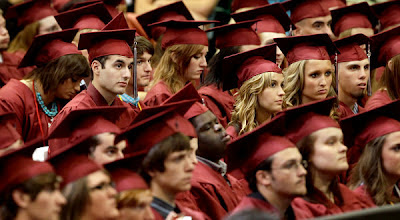[ed. Libor, the inter-bank lending rate that affects a host of financial instruments (e.g. futures, variable rate mortgages, currencies, etc. It was announced today that the chairman of Barclays has resigned.]
This is a huge story:
Despite widespread expectation that it would be UBS, it turned out to be Barclays. You know how in Law and Order Jack McCoy always puts the two murder accomplices in separate rooms and tells them both that whoever talks first wins? Something like that happened here. In any case, the Department of Justice filing on the settlement contained excerpts of emails and other evidence that recall the taped phone conversations in the Carollo case: once again, we have seemingly incontrovertible evidence of wide-scale market manipulation. From Alison Frankel at Reuters:
by Matt Taibbi, Rolling Stone | Read more:
This is a huge story:
On Wednesday, Barclays won the race to reach a deal with U.S. and British regulators, beating UBS, which was reportedly the first bank to begin cooperating with international antitrust authorities. Barclays agreed to pay at least $450 million to resolve government investigations of manipulation of Libor and the Euro interbank offered rate (or Euribor): $200 million to the U.S. Commodity Futures Trading Commission, $160 million tothe criminal division of the U.S. Department of Justice and $92.8 million to Britain's Financial Services Authority.I wrote about the Libor investigation in the current issue of Rolling Stone, in "The Scam Wall Street Learned From the Mafia," about muni bond bid-rigging. Throughout this spring, while the Carollo bid-rigging case played out in a Manhattan courtroom, negotiations between banks and regulators were going on in this far larger cartel-corruption case. It’s been clear for some time now that a number of players had begun cooperating, and the only question was which bank was going to settle first.
Despite widespread expectation that it would be UBS, it turned out to be Barclays. You know how in Law and Order Jack McCoy always puts the two murder accomplices in separate rooms and tells them both that whoever talks first wins? Something like that happened here. In any case, the Department of Justice filing on the settlement contained excerpts of emails and other evidence that recall the taped phone conversations in the Carollo case: once again, we have seemingly incontrovertible evidence of wide-scale market manipulation. From Alison Frankel at Reuters:
Barclays employees agreed to manipulate the rates they submitted to the banking authority that oversees the daily Libor report for seemingly anyone who asked them to monkey with it: senior Barclays officials concerned that the bank would look weak if it reported too high a borrowing rate; interest rate swap traders trying to improve Barclays' derivatives trading position; even former Barclays traders begging for favors. We're talking naked, blatant manipulation. Here's one exchange cited in the DOJ filing:This is unbelievable, shocking stuff. A sizable chunk of the world’s adjustable-rate investment vehicles are pegged to Libor, and here we have evidence that banks were tweaking the rate downward to massage their own derivatives positions. The consequences for this boggle the mind. For instance, almost every city and town in America has investment holdings tied to Libor. If banks were artificially lowering the rates to beef up their trading profiles, that means communities all over the world were cheated out of ungodly amounts of money.
Trader: "Can you pls continue to go in for 3m Libor at 5.365 or lower, we are all very long cash here in ny."
Libor rate submitter: "How long?"
Trader: "Until the effective date goes over year end (i.e. turn drops out) if possible."
Submitter: "Will do my best sir."
by Matt Taibbi, Rolling Stone | Read more:
















